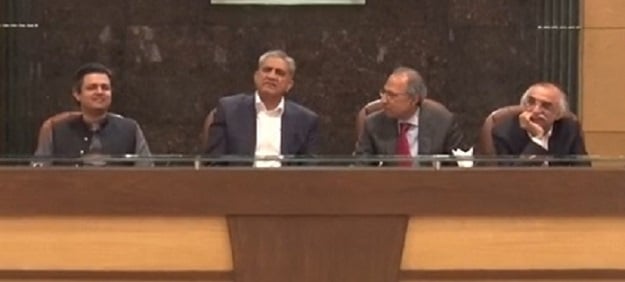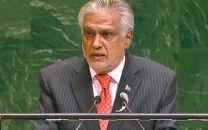National security intimately linked to economy: COAS
Businessmen share suggestions with the economic team to further improve the commercial environment

COAS General Qamar Javed Bajwa: PHOTO: ISPR
The Inter-Services Public Relations (ISPR), in a statement, quoted the army chief as also saying that prosperity is a function of balance in security needs and economic growth.
The discussion was held during the second round of a seminar titled ‘Interplay of Economy and Security’. It was held at army auditorium and the COAS apprised the participants regarding the improved internal security environment of the country which has created space for increased economic activity.
Security-economy link: ‘Sky high debt’ worries COAS
“Accessibility and responsiveness of government economic team to the business community and displayed understanding between public and private institutions is a good sign for intended positive trajectory in economic activity,” said General Bajwa.
He added that the aim of various discussions and seminars was to bring stakeholders to one platform to formulate recommendations for a "synergistic way forward".
“National security is intimately linked to eco while prosperity is function of balance in security needs & economic growth. Aim of various discussions and seminars was to bring stake holders at one platform to formulate recommendations for a synergistic way forward”, COAS. (2of2) pic.twitter.com/IvV70ZZKo9
— DG ISPR (@OfficialDGISPR) October 3, 2019
The government's economic team also apprised the business community present at the seminar regarding various incentives being introduced to facilitate businesses and the "encouraging results of stabilisation efforts on the national economy".
‘Cumulative debt has crippled national economy’
Businessmen shared their suggestions with the economic team to further improve the environment for ease of doing business.

They assured that they will cooperate in the implementation of government reforms and also play their part by paying taxes and investing in a socially and economically responsible manner.
The army chief concluded the seminar by thanking all participants for purposeful utilisation of the joint forum by stakeholders for discussions and seminars leading to the formulation of policy recommendations for subsequent processes and implementation.



















COMMENTS
Comments are moderated and generally will be posted if they are on-topic and not abusive.
For more information, please see our Comments FAQ